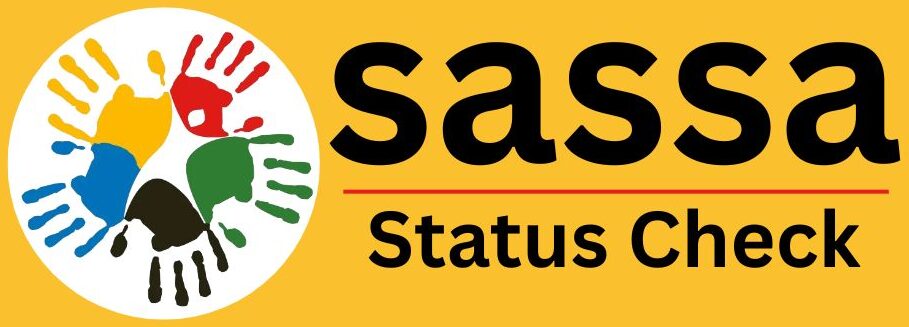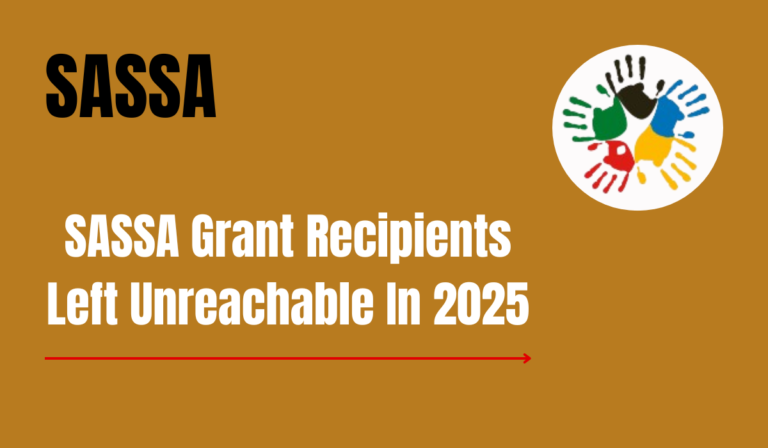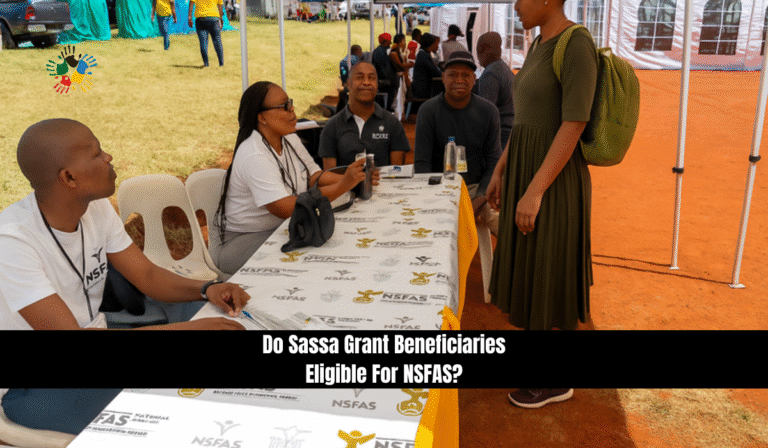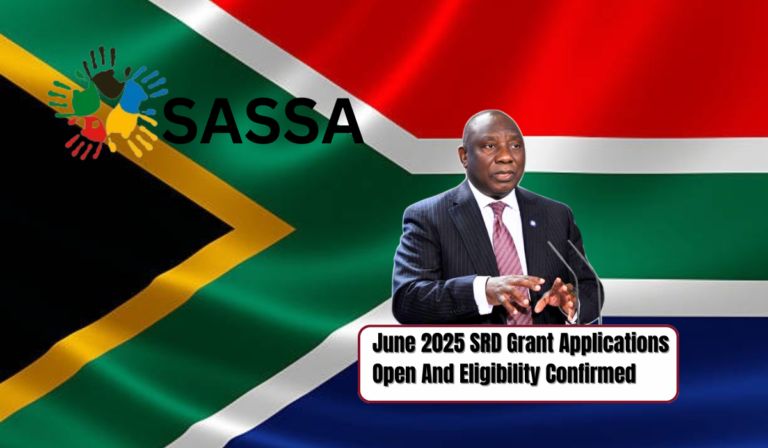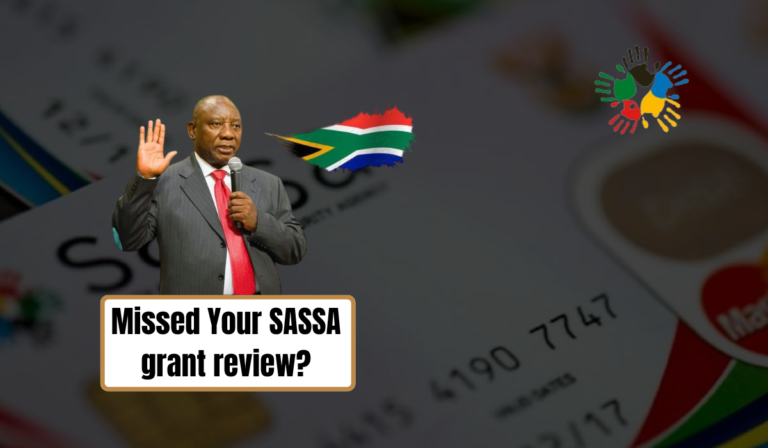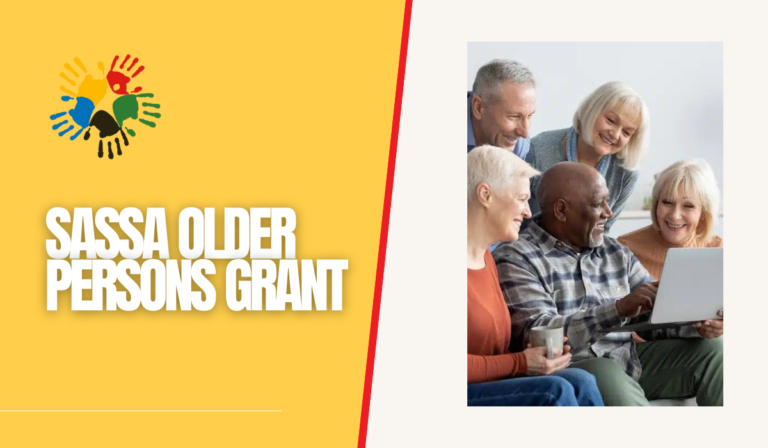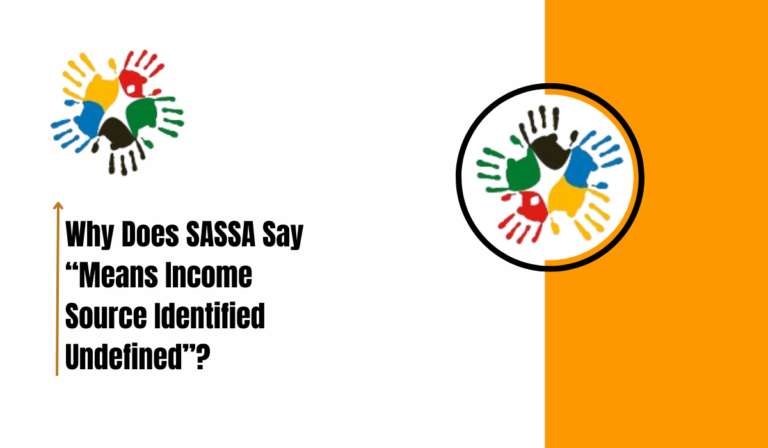Social Grants Are Unpaid As Beneficiaries Struggle With The SASSA System
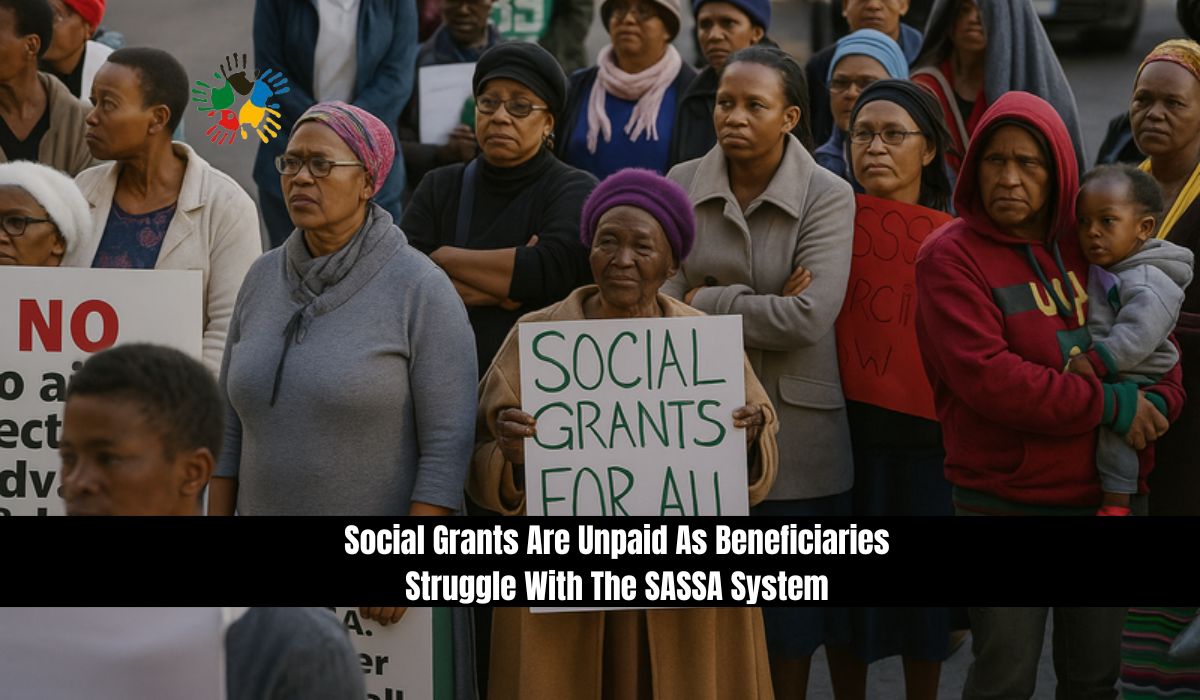
Social Grants Are Unpaid As Beneficiaries Struggle With The SASSA System. South Africa most vulnerable citizens continue to face challenges in accessing their social grants, particularly the R370 Social Relief of Distress (SRD) grant, due to technical failures in the SASSA system. The agency’s new biometric verification method, introduced to combat fraud, is unintentionally locking out thousands who depend on this grant to survive. Without timely assistance or alternatives, many are pushed into deeper financial distress.
The Promise and Problem of the SRD Grant
The SRD grant is meant to support unemployed individuals and those without other forms of income. At R370 per month, it may seem modest, but for millions of South Africans, it’s the difference between having food on the table and going to bed hungry.
Initially introduced during the COVID-19 pandemic, the SRD grant was hailed as a lifeline. Today, nearly nine million people rely on it, although that number fluctuates based on means testing criteria.
However, SASSA latest efforts to prevent fraud through biometric identity verification have left many eligible individuals unable to access their funds.
The Biometric Verification Crisis
To enhance security, SASSA now requires biometric verification for both new applicants and those whose accounts are flagged for fraud. Unfortunately, this SASSA system is riddled with delays, inaccessible links, and technological hurdles.
| Step | Description |
|---|---|
| Step 1 | Applicant is asked to verify identity through an online link sent by SASSA. |
| Step 2 | The link prompts the user to take a facial scan or input personal data. |
| Step 3 | Data is matched with Home Affairs’ system. If successful, access is restored. |
Sounds simple? In practice, it’s anything but.
Real People, Real Struggles
Dalene Raiters, a grant recipient from Eldorado Park, initially received her SRD grant in 2023. However, when her account was flagged for suspected fraud, she had to apply for a smart ID card to complete biometric verification. The process was expensive she paid R140 for the ID and R320 for transport to Home Affairs.
She finally began receiving payments in July 2024, only to be blocked again in May 2025. Despite repeated requests for the online verification link, her account remains inaccessible.
With no income, Raiters turned to loan sharks, borrowing R200 and paying back R300 a 50% interest rate. She relies on the SRD grant to buy essential groceries like the Shoprite R99 combo:
| Shoprite R99 Combo Items |
|---|
| 2.5kg white maize meal |
| 2kg parboiled rice |
| 750ml sunflower oil |
| 400g chilli beef soya mince |
| 500g macaroni or spaghetti |
“I couldn’t buy that this month, and now we’re struggling,” she said.
Technological and Structural Barriers
According to Black Sash helpline manager Kgothatso Sibanda, many affected individuals are unable to even begin the biometric verification process due to systemic issues:
- Links for online verification often never arrive.
- Many beneficiaries lack smartphones or data to access the links.
- SASSA’s helpline rarely provides useful assistance.
Sibanda reported that up to 35 people per week contact Black Sash because they haven’t received verification links. Most of them are young adults who’ve just turned 18, only to discover their IDs have been used fraudulently by others to claim grants.
A System That Excludes
One of the most serious issues is the exclusion of people who do not have smart ID cards. Individuals using green ID books are more likely to fail the biometric scan due to poor quality photos stored on the Department of Home Affairs’ system.
Lincaster Davids, also from Eldorado Park, has been unpaid since March 2025. He tried to update his cellphone number on the SASSA system, which required biometric verification another dead end.
“I went to the SASSA office in Eldorado Park, but they cut the line and told me to come back,” he said.
Without updated contact details, he cannot receive his R370 grant. To collect it from retailers, beneficiaries must:
- Show a valid ID.
- Provide the linked cellphone number.
- Approve a confirmation message sent to the number.
Without any of these, access to the SRD grant is impossible.
The Human Toll
Elizabeth Raiters, a social grants activist, shared that she deals with ten walk-in complaints daily. People come to her house seeking help, but all she can do is explain that the SASSA system is broken.
“It’s either down or very slow. When people do get a link, it often doesn’t work,” she explained.
The SRD grant has become unreliable. “It’s more of a punishment than a support system,” said Raiters. “It’s the only grant that is so uncertain.”
SASSA Response – Or Lack Thereof
When asked for a response, SASSA told GroundUp it was unaware of problems with the biometric system and requested a list of affected individuals. A week later, the official in charge was reportedly on leave, and no further update has been provided.
This lack of accountability only deepens public frustration and worsens the situation for struggling beneficiaries.
Suggested Solutions and the Way Forward
Experts and activists have proposed several steps that could improve the SRD grant disbursement process:
| Suggestion | Details |
|---|---|
| Manual verification at local offices | Allow SASSA staff to manually verify identities for those struggling online |
| Data-free mobile app access | Launch an app that doesn’t require data to complete biometric steps |
| Integration with community centers | Use municipal offices and community halls as verification points |
| Hotline revamp and escalation channels | Improve call center service with trained agents and escalation protocols |
Kgothatso Sibanda of Black Sash also recommends placing help desks in all SASSA offices to assist those who cannot access digital tools.
FAQs About
What is the SRD grant and who qualifies?
Ans: The Social Relief of Distress (SRD) grant is a monthly payment of R370 provided by the South African government to unemployed individuals who do not receive any other form of income or grant. Applicants must be South African citizens or permanent residents between the ages of 18 and 59.
Why is biometric verification required for the SRD grant?
Ans: Biometric verification is part of SASSA’s efforts to reduce fraudulent claims. It uses facial recognition or fingerprints to confirm a recipient’s identity before granting access to funds.
What can I do if I haven’t received the biometric verification link?
Ans: If you haven’t received the link, try the following:
- Call the SASSA helpline (though it may have long wait times).
- Visit your nearest SASSA office and request manual verification.
- Contact advocacy groups like Black Sash for assistance.
Conclusion
The SASSA system, while well-intentioned, is failing the very people it was designed to help. The current biometric verification process may reduce fraud, but it’s also excluding thousands of vulnerable South Africans from accessing their only source of income.
